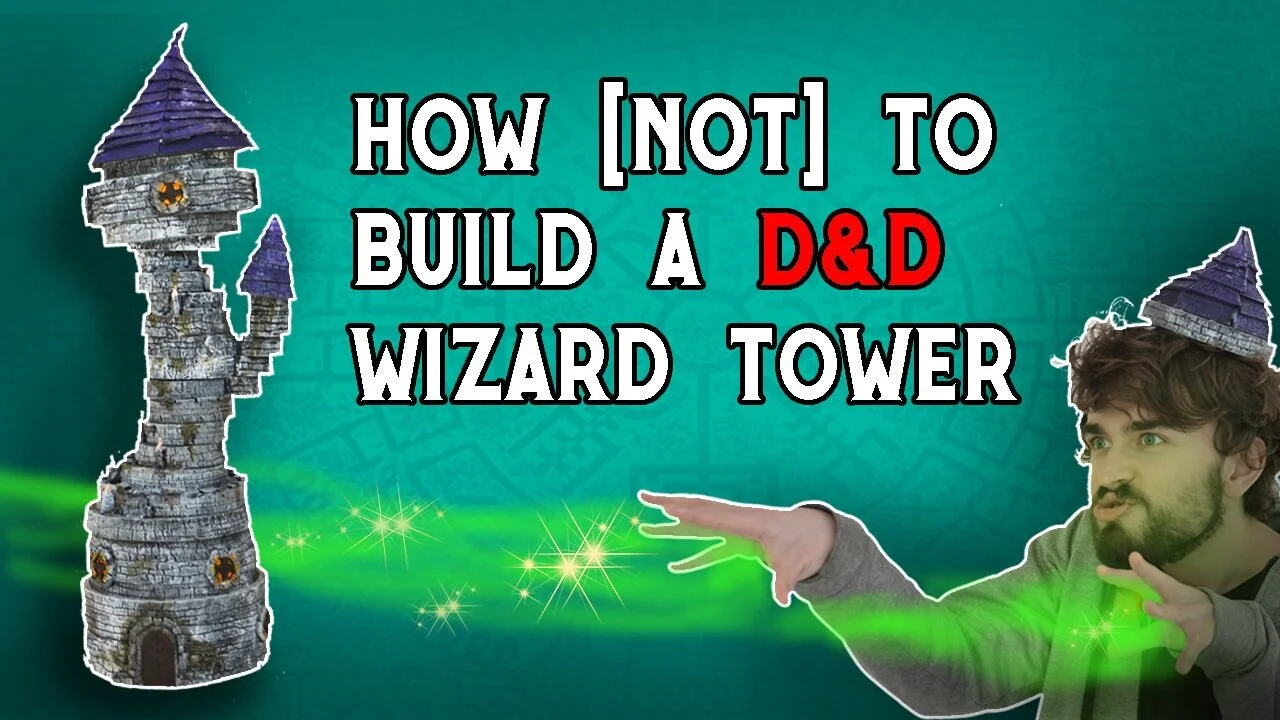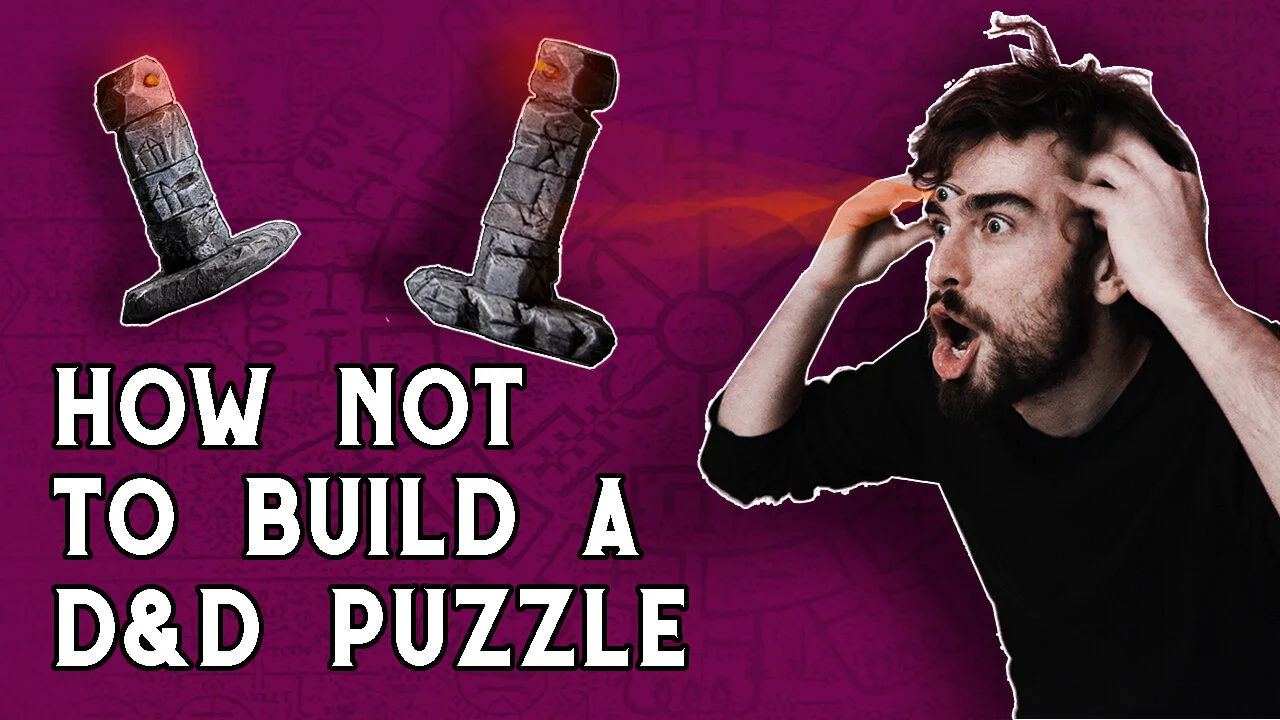Death Saving Tips to Organize your Game
Organizing your game is one of the most significant pain points running D&D. You need to manage a group of people with different life schedules and ensure that everyone can participate in your game. And of course, there is last moment flaking and countless other things that Dungeon Master needs to take into consideration when running a game effectively.
After working in a corporate hellhole for a long time, I learn a couple of tips that could be applied running your DnD games, effectively. So, let's get a bit corporate in running your games.
Carving Out the Day and Time
So you know what is horrible when organizing a game session day and time? Democracy. One thing for sure is that there will not be a perfect time for your group to participate in the session.
For that, my Death Saving tip here is to dedicate a day and time and preferably the length of the sessions, with your players, that could be set in stone. Unless you want to waste time personally for making Polls when it's the best time to play, every single week, wait for players' responses, trying desperately to find a sweet spot to satisfy everyone. Well, it's never going to happen perfectly. Having a flexible day for playing D&D will disrupt your game flow and, in the end, cause more trouble than those great intentions. Some may feel like they are busy, they are lazy at the moment(and tell you they're busy) and every other excuse(Birth of a Child? Seriously Tom? Where are your priorities?). But having a fixed date and time lets your players know and anticipate the session. Hopefully, this will grow as a habit for your players. This, in turn, gives your group more stability in means of attendance and diminishing of last-minute flakes. And also, this eliminates a lot of logistical nonsense, which brings the satisfaction level down.
Have Bench Players
Now, I don't know about you, but I'm not too fond of last-minute flakes. At my table, I want to know at least a day before or more if possible, though a personal message that a player can't make it. Have a rule or agreement with the party so that you could have time to adjust the encounters, maybe even the story a bit.
But what helps me with players not showing up is dividing players into two groups - The CORE and the BENCH players. It's a straightforward Idea. Reliable people that want to play the game, they know their schedules, attend regularly, and so on, get to be on the CORE group. This group consists of the number of people you are comfortable to play with, for me, that is between 5-6 people. Now BENCH is people that have chaotic schedules, other responsibilities, maybe a job, university, family responsibilities, also don't have a fixed schedule. But they still want to play. I make a list of BENCH players up to 3-4 players that could replace the CORE group at any moment. BENCH players could also include those, that want to try out the game, but I still prefer people that understand the concept of being a quest character that is ready to improv the reasons why they are there with the party. Also, players that want to switch up characters all the time could fit perfectly in this concept, but there is a risk of having players that grow out of knowing how to play their characters if they are not invited for quite some time.
Another reason for bench players is that they can replace the core players at any time and if somebody's life changes in some way, there are some people to switch up the roles. If Tom wants to focus on his gardening, maybe Bob can switch places giving priority to others. Having this approach gives players the autonomy to decide how involved they want to be in the campaign. This also gives your table much-needed stability in terms of the group size, not canceling the sessions because there are not enough players at your table.
Assign Roles to your group, delegate.
Look, this is D&D incorporated. This is no mom and pop shop. Your group and your table should be managed as a Forbes 500 company, a lean, mean, well-oiled machine. Kidding, BUT I'm not.
As a DM you might want to have as much control and power as you can, but this idea is ridiculous. It's a team game so as a DM, always try to delegate such the crucial roles as this to others:
Food Delivery Marshal or Chief of Provisions(A person that orders pizza, or even makes it? Hmmm..). He figures out what people want to eat, orders it without disrupting the game flow.
The Master of Coin or Chief Financial Officer - That keeps track of money owed each player for the pizza, divides the cost of miniatures, price of battle mats, and other equipment in an equal share. It also keeps track of magical party items, number of health potions and can answer about in-game resources that the party has. Also, he should count quickly for damage, optional, yet critical.
Master of Muses - Person that is responsible for the music flow during the sessions, he must change the music from city to village soundtracks in an instance if DM is transitioning with his story. Also, indicate the DM when it's the right moment for a long-needed break if DM is in a trance of DM'ing for too long.
The Legal Department Chief Officer - Yes, kinda a rules lawyer, but ONLY WHEN DM ASKS FOR IT'S ADVICE, goddammit. He helps players in prepping new characters if there are some rules confusion. It also gives the rules advice quietly for not to disturb the game.
The Second In Command - The Second DM. If the plague gets the DM, brakes his head while trying to count the damage or something, this man or lady will fill the boots of Dungeon Master next session while the sick or incapacitated DM is rolling death saves. Look what matters are that D&D would go on, with or without you at your table. So have someone that actually can run another game while you're gone. Or even if he can't do that, organize a tabletop game night instead, to keep the habit going, while you're rolling in your bed, drinking herbal teas to ease the pain of impending doom. It will also give you more chances to make another great DM in the process and also have an opportunity to play as player in the future.
Also, give the responsibility to get in touch with the bench players when it's needed. And let him fill the crucial roles if another member is missing.
Look, this is just funny titles I made up for my group, and there is tremendous value giving out responsibilities and focusing on what matters. DM - should run the game, not call the pizza place or have extra responsibilities on top of his head because he is already making an enormous effort. Try to take away as many small nuisances for yourself, and your players will probably do a better job with these assigned roles than yourself. This approach will include everyone in the process, and everyone will feel accountable to some degree for the session's success.
Prepare more effectively
Now, with some responsibilities transferred to other people, you have more time to focus and prepare for the session. For instance, I love to roll initiative for combat encounters beforehand so that I could don't waste time doing that during a session. Put statblocks of monsters in encounters so you could see their abilities always on hand, and that helps hugely, and you will not waste time scrolling the books..
Use various tools for prepping to make it an effortless process. I use my laptop to get information quickly and get my notes out of it, using Evernote or OneNote(or D&D Beyond if you don't have the books) during the sessions. Find things that work for you and use them for the sake of having a great session. But even then, when it comes to notes, make them clear to read for yourself. Don't overcomplicate your notes. It will only hurt your attention in the session when already there are too many things to juggle.
Structure your D&D sessions and your story(At least a bit)
Now, when you can't measure, you can't evaluate. Always have structure or at least something to indicate it. For instance, my sessions go for 5 hours. During that, there will be 4-5 more significant encounters. Then I think about how long the campaign lasts. For example, a campaign will last for 25 sessions that is 100-125 encounters from start to finish. Now I can think of ways how to use these numbers effectively and how to enhance the dramatic/story moments by planning a bit. Try to have story guidelines for my game when to level up and loosely plan what I want to happen during these sessions. Those 25 sessions will be 6.25 months, so are there any events, dates that go in conflict with your said D&D date? Prepare logistically for the future, and that will ensure a tremendous D&D organization increase for your table.
Plan for your inevitable demise
Look, plan as you want, but those plans will fail on day. What matters then is that you react to that accordingly. Don't panic, don't bash your players, if they are flaking, or blame somebody because something went out of your tyrannical Corporate Grip. These methods that I employ is to make a Corporation of Fun, not tyranny. So use these tips and advice with common sense, relax, and play the game. It should always be fun for your players to help out the group with these organizational elements. All of the organizational aspects of running the game also should aim for one thing - is to provide more fun and flow for your party and the game you're running. Cheers!
If you enjoyed this article and want to see more of Dungeon Goblin content, consider supporting us by making a direct donation through our blog or supporting us on Patreon. Dungeon Goblin is a new blog, and your support matters immensely to us. We want you to become one of the first Dungeon Goblin supporters and grow it into something amazing one day. Thank you for reading!





